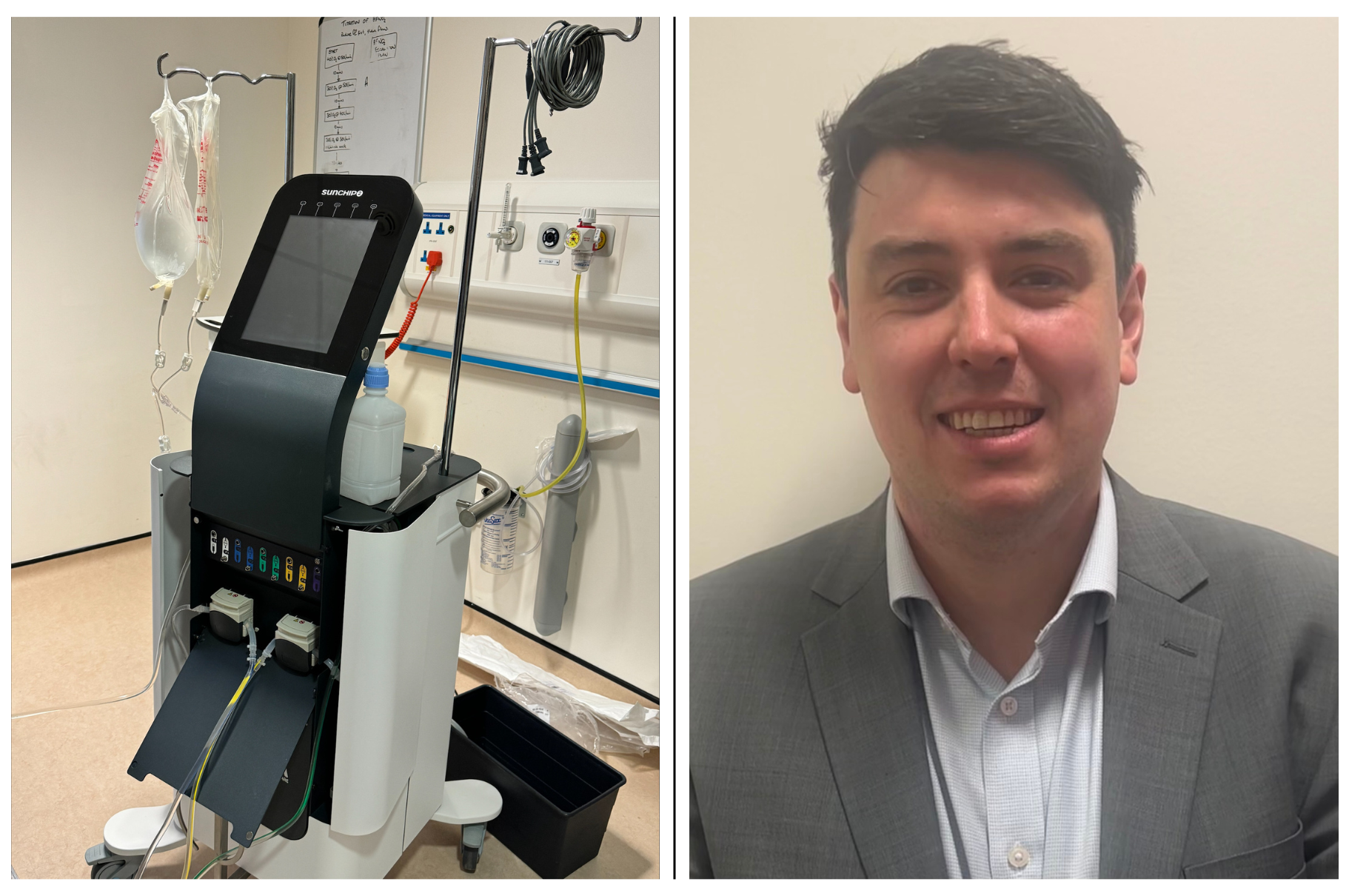
Peritoneal malignancy (cancer which has spread to the peritoneum, a thin membrane that covers the abdominal organs and abdominal cavity) can arise from colorectal and appendiceal cancers. Patients with colorectal peritoneal metastases (a type of peritoneal malignancy) face extremely poor survival outcomes and unpleasant symptoms which can be difficult to control.
A growing body of evidence including randomised controlled trial data suggests that cytoreductive surgery and a heated chemotherapy wash (hyperthermic intraperitoneal chemotherapy, known as HIPEC) can improve survival outcomes for this group of patients.
During this specialist treatment the surgeon first removes all visible tumours, this is known as cytoreductive surgery. The surgeon then heats up chemotherapy drugs with a HIPEC machine (heating the drugs increases its ability to kill cancer cells) and pumps them into the abdomen. After 90 minutes, the warm chemotherapy drugs are drained, and the incisions are closed.
Currently, most patients in Scotland with peritoneal malignancy, including colorectal peritoneal metastases, must be referred to treatment centres in England (Basingstoke Peritoneal Malignancy Institute and The Christie Cancer Hospital in Manchester). This incurs significant financial costs for NHS Scotland, and substantial psychological and financial costs to patients and families who must travel far from home for treatment. Despite the impact of the Covid pandemic, there has been a steady increase in the number of referrals annually.
Beatson Cancer Charity awarded £73,950 to Mr James Park (Consultant Colorectal and General Surgeon) for developing a peritoneal malignancy service at the Queen Elizabeth University Hospital (QEUH) in Glasgow – the first in the West of Scotland. This funding has enabled James to purchase a HIPEC machine and consumables for the first year of the service.

"I would like to thank Beatson Cancer Charity for their financial support. The purchase of a hyperthermic intraperitoneal chemotherapy machine for the Queen Elizabeth University Hospital will allow us to offer surgery for a group of patients in the west of Scotland with advanced colorectal and appendix tumours who, until now, have only been able to undergo such treatment in specialist centres in England. Having the opportunity to undergo treatment closer to home will hopefully make this much less stressful for patients and their families."
Mr James Park - Consultant Colorectal and General Surgeon, QEUH - NHSGGCThis medical equipment will allow the initial development of the service and the treatment of a small number of eligible patients from the Beatson West of Scotland Cancer Centre and West of Scotland. The first year of the service will also produce pilot data required for developing a future national service for treating peritoneal malignancy. Although solely focusing on patients with colorectal peritoneal metastases during the initial years of service, in the future, the national service will be developed to offer treatment to patients with peritoneal malignancy arising from other cancers including appendiceal cancer.
The service will be supported by a collaboration with the Basingstoke Peritoneal Malignancy Institute, world leaders in the treatment of peritoneal malignancy.
The establishment of the service will help to open access to life-saving treatment, closer to home for patients from the Beatson West of Scotland Cancer Centre and West of Scotland. It will also enable clinicians to obtain tumour samples from this group of patients for ethically approved research projects which will aid the development of future treatment strategies.





 Donate
Donate